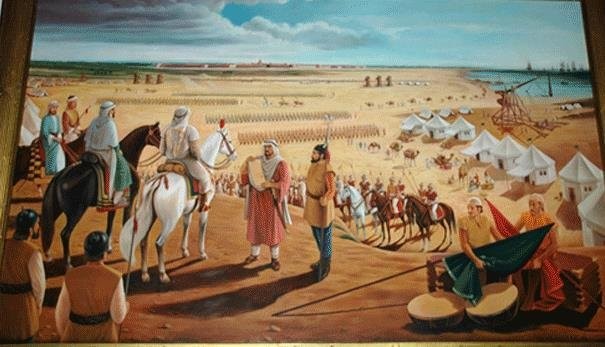The Social Constructionist paradigm suggests reality is not objective but socially constructed and ever-changing. The discourse analysis of Muhammad Bin Qasim and Christopher Columbus’ expeditions supports this claim. Historical events can be reinterpreted to serve political interests, giving birth to multiple stories and realities. This highlights the complex and multidimensional nature of reality.
Suppose someone were to suggest that your conception of reality is not an objective truth but it is shaped by your individual experiences because reality is complex and multidimensional. There could be multiple realities and truths existing simultaneously with the reality you perceive. The perception of your reality is influenced by everything you have been through, the societal and cultural experiences. The hypothesis mentioned above would not be incorrect because the Social Constructionist paradigm claims the same. Reality is not objective but a socially constructed concept that is ever-changing. The discourse analysis of Pakistan’s national hero Muhammad Bin Qasim and Christopher Columbus’ exploration of the modern United States of America is quite similar to the hypothesis mentioned above.
The attack on Sindh by Muhammad Bin Qasim in 712 is a long-passed event in history but it is significantly relevant for different communities in contemporary times due to the meanings attached to it. The social media platform X, formerly known as Twitter flooded with thousands of tweets mentioning Muhammad Bin Qasim and Raja Dahir of Sindh in May, 2020. The first hashtag that paved its way to top trends was #MuhammadBinQasimRealHero which was started by the supporters of (MBQ) on May 04, 2020. The supporters of Raja Dahir, on the very next day, started a hashtag #RajaDahirIsNationalHero claiming that not Muhammad Bin Qasim but Raja Dahir was a national hero who defended his motherland and fought for Sindh against the Arab invader. This shows all those who discuss this event and provide a new meaning to it must have their political motivation for which they wanted to construct a different reality for themselves and for their communities.
Similarly, Christopher Columbus whose expedition in 1492 established European presence in the new world. While most Americans consider him as a hero, some of them curse him for miseries brought to the natives of the land. Historians argue that he used slavery and violence, forcedly converted indigenous people to Christianity and brought deadly diseases such as smallpox, measles, typhus, and cholera for which natives had no strong immunity. The expedition of Christopher Columbus provides us with two major discourses that have been recorded in history. The first discourse depicts Columbus as a hero who must be honored because he founded the new world. President Franklin Roosevelt delivered a speech on 12th October, 1942 on the 450th anniversary of Columbus’ arrival in the America. The second discourse contradicts the first one as there are several states in America that do not acknowledge Columbus as a hero and reject the celebration of Columbus Day. Those include, Vermont, Maine, New Mexico and South Dakota. The celebration of Columbus Day is not uniform across the United States. It is up to individual states and municipalities to decide whether to observe it and how to do so. For the celebration, Christopher Columbus is often credited with “discovering” the Americas, but this narrative ignores the fact that indigenous people had lived in the Americas for thousands of years before his arrival. This is how a single event that took place long ago is used to give birth to multiple stories in order to gain political interests.




